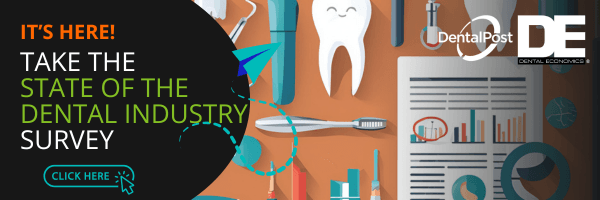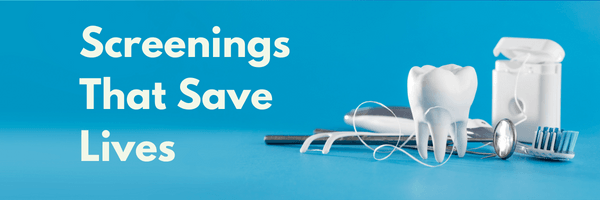
Ready to Move On? 5 Signs It’s Time to Quit (And How to Be 100% Sure)
Posted January 17, 2020
This article was originally published on January 17th, 2020. It was most recently updated on April 19th, 2022.
2021 was dubbed the year of the ‘Great Resignation.’ It’s little wonder why, given that 4.5 million Americans quit their jobs by November 2021. The US Bureau of Labor Statistics (BLS) reported that “November 2021 saw an all-time high of recorded quits – a total of 370,000 for the month, with some of the largest increases in resignations seen in the healthcare industry.”
BLS further explained that these resignations are generally voluntary and taken by the employee. As a result, this resignation rate is often used to measure employees’ willingness to leave their jobs.
“In November 2021, quits increased in several industries, with the largest increases in accommodation and food services, health care and social assistance, and transportation, warehousing, and utilities.”
Fasttrack to just over four months later, and these figures have finally started to decline. Given that so many people are still contemplating it, this leads us to ask: is quitting your job right now the right move?
Also, how do you know what the best decision is right now for your career? We’ll help you determine if finding a new job is the right choice for you and how to be sure before making any major changes!
Is Quitting In 2022 the Right Move?
Let’s look at some of our recent Dental Post Job Satisfaction Poll stats to see how other employees feel about their jobs.
According to our findings, out of the 227 dental hygienists who responded, nearly 60% said they’re actively looking and applying for jobs in 2022. Dental assistants echoed this, with 63% saying they’re also looking for better job opportunities. 67.5% of front office members also confirmed they were on the hunt for new jobs in 2022.
These stats are higher than the findings from the DentalPost Salary Survey we conducted from mid-July through September of 2021.
Why Do These Employees Want to Leave?
Based on our findings in our Job Satisfaction poll, five of the top six reasons for dental workers applying for new jobs in 2022 include:
- Wanting a higher-pay position is one of the top-listed reasons for employees choosing to look for another job.
- Wanting to feel more appreciated in the workplace is another motivation provided. Dental workers consistently report not feeling appreciated enough for their work.
- Needing more comprehensive healthcare benefits also ranks amongst the top six. In line with salary expectations, many dental workers state they want better healthcare benefits from their bosses.
- Needing more time off is another motivation listed. An alarming 77% of dental workers have reported experiencing burnout and not having enough time off to recuperate.
- Wanting more supportive co-workers is also a motivator. Employees value a workplace where they receive support from their managers, co-workers, and employers, based on mutual gratitude and respect. Currently, they say they don’t receive the help they need.
Keeping these top reasons in mind, what would be the main reason or reasons for you to leave your current job? Use the five questions below as a guide.
5 Questions to Help Decide If It’s Time To Move On
1. Are You Feeling Underpaid?
Our recent Salary Survey Report provides the average median income for each dental profession by state and will help you determine how you compare.
For example, the highest-paid dental hygienists (RDH) live in Washington DC and earn a mean annual income of $109,750 for a 30-hour workweek. The lowest-paid RDHs reside in Alabama, earning around $40,000 annually.
On the other hand, dental assistants who live in California, Oregon, Virginia, Utah, Minnesota, Washington, and Massachusetts earn the highest wages of between $46,000 to $50,000 annually. Assistants who earn the lowest wages of less than $30,000 per year live in Louisiana, Wyoming, Kansas, West Virginia, Kentucky, Mississippi, Oklahoma, and Tennessee.
What is your average hourly wage, and is it consistent with other practitioners in your role in your state? Would moving states help you earn more than the cost of living for that state?
Keep in mind that geographic location can affect the cost of living there and the potential wage amount you could earn. For example, in Alabama, dental hygienists earn an average annual income of $40,000 or around $3,300 per month.
An RDH looking to move to Washington DC might be happy to know that the average annual income for their position is $109,750. According to Best Places’ cost of living calculator, however, you would need to be earning at least $86,841 to maintain the same standard of living. The cost of living in Washington DC is 94.8% more expensive than in Montgomery, Alabama.
Even though you would be earning more in Washington DC than in Alabama, the massive increase in living costs means that you might not be saving much more than you would in Alabama.
2. Is Your Work Office Toxic?
If your co-workers are bullies or constantly complaining, or your boss’s leadership style doesn’t fit well with you, your working environment can quickly become toxic.
What is a Toxic Workplace?
A toxic workplace is an environment where you might find it difficult or uncomfortable to progress or be productive. This may be due to a hostile atmosphere created by co-workers, your boss or manager, or the overall company culture.
Common red flags of a toxic workplace include cliques forming between co-workers, deliberate inclusion or exclusion, a gossiping culture, minimal or no work-life balance, low staff motivation, and high employee turnover.
According to the DentalPost Dental Job Satisfaction Poll, toxic work environments play a more significant role than in previous years in employee resignation. 55.75% of dental Front Office workers reported wanting to escape a toxic work environment in 2022. 38% of dental hygienists and 31% of dental assistants have also listed a harmful work environment as their reason for leaving.
3. Is Your Office Culture a Bad Fit?
Perhaps you’ve tried your best to fit in, but you always feel like you don’t belong. Maybe your work style doesn’t align with others in the office. There are other offices whose culture and working style might be a better fit for your work preferences, schedule, and other professional goals.
How can you determine the right office culture for you?
Find out by completing our Core Values and Workplace Culture Assessments.
Our Core Values Assessment will help you understand what you value the most personally and professionally. At the same time, our Workplace Culture Assessment will show you the type of environment you’ll most enjoy and in which you’ll work best.
4. Are You Feeling Undervalued or Ignored As a Team Member?
Feeling like your contributions go unrecognized or unheard will eventually affect your morale. It’s normal to want to feel valued and respected as an essential team member in your office. While this doesn’t mean your ideas or suggestions will always be implemented, they should at least be able to speak up and have your opinions and recommendations acknowledged and respectfully heard.
How do you build enough confidence to ask your employer for more support in your career?
Find out how by completing our alignment questionnaire. It will help you better express your goals and vision to your employers, enabling them to support you.
5. Is Your Job Starting to Affect Your Mental and Physical Health?
Is your job making you physically sick or causing you to self-medicate in whatever way works for you? Are you losing sleep, or is your quality of life affected by your job? No job is worth more than your health, no matter how much you earn or the type of work.
Download our Salary Survey Report to compare your work hours with other individuals in your position. As you review the report, ask yourself these questions:
- Am I being overworked?
- Am I being compensated for taking on additional responsibilities?
- When I’m on leave, am I getting paid?
- How are my peers comparing?
6. Do the Cons Outweigh the Pros?
So, how do you measure up? Now that you have looked at the data from over 13,000 dental professionals nationwide, how would you rate your own job experience and workplace?
Perhaps you have decided things aren’t so bad after all. That’s great! DentalPost’s annual Salary Surveys and Job Satisfaction polls will keep updated on industry trends. So, circle back to check for any changes in the year.
Alternatively, like your peers looking for new beginnings, have you realized the drawbacks exceed the benefits? Are you ready to make a career move?
Find a Better Fit By Harnessing the Power of Data
Remember, it’s critical to look before you leap. Before committing to meaningful life or career decisions, make sure you have all the facts. The deeper you dig into your needs, values, work styles, and work culture preferences, the better the outcome.
DentalPost can help you with this. Our FREE assessments will help you understand what matters most to you for your next job, rank higher in employer searches, and match with employers who align with your core values and career path.
Ready to take the plunge to find the right dental job? Click here to create a DentalPost account, take our assessments, and search for available positions online.
We connect and educate more than 900,000 job seekers in the U.S. and Canada to build better places to work through teams that excel.





.png)


